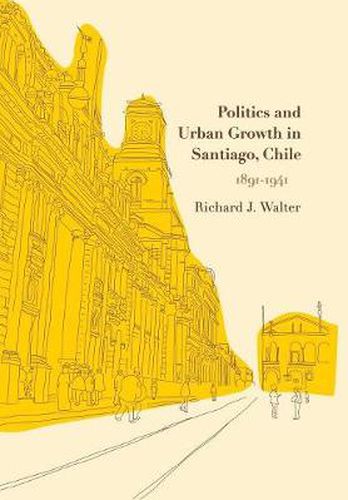Readings Newsletter
Become a Readings Member to make your shopping experience even easier.
Sign in or sign up for free!
You’re not far away from qualifying for FREE standard shipping within Australia
You’ve qualified for FREE standard shipping within Australia
The cart is loading…






From 1891 to 1941, Santiago - Chile’s capital and its largest and most important city - experienced rapid urbanization, industrialization, and administrative expansion along with a massive internal migration that had significant social and economic consequences for the city. This book is the first study to focus on this important period in Santiago’s history. Drawing on a wide range of original research, the book describes the growth of the city, both demographically and physically, and highlights the role of the local administration in this process. Histories of urban politics are relatively rare for both Chile in particular and Latin America in general, and this study seeks to fill these gaps. Some of the topics covered include the impact of Chile’s complex multi-party system on local administration, the role of corruption in the management of city affairs, the relationship between the municipality and powerful foreign interests, the emergence of economic nationalism, and the pioneering part played by women both as voters and as elected officials in the capital’s governance.
$9.00 standard shipping within Australia
FREE standard shipping within Australia for orders over $100.00
Express & International shipping calculated at checkout
From 1891 to 1941, Santiago - Chile’s capital and its largest and most important city - experienced rapid urbanization, industrialization, and administrative expansion along with a massive internal migration that had significant social and economic consequences for the city. This book is the first study to focus on this important period in Santiago’s history. Drawing on a wide range of original research, the book describes the growth of the city, both demographically and physically, and highlights the role of the local administration in this process. Histories of urban politics are relatively rare for both Chile in particular and Latin America in general, and this study seeks to fill these gaps. Some of the topics covered include the impact of Chile’s complex multi-party system on local administration, the role of corruption in the management of city affairs, the relationship between the municipality and powerful foreign interests, the emergence of economic nationalism, and the pioneering part played by women both as voters and as elected officials in the capital’s governance.